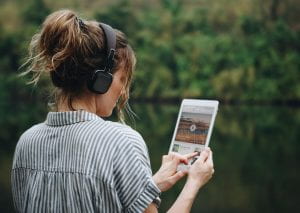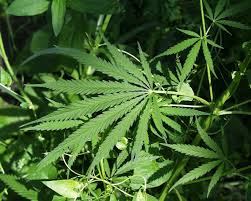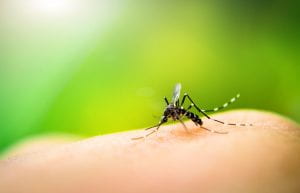
Young people ages 8 to 18 should all receive an annual screening for anxiety, according to a new recommendation by the U.S. Preventive Services Task Force, a volunteer panel of experts who make public health recommendations. [Read more…]
Bridging the gap between research and real life

Young people ages 8 to 18 should all receive an annual screening for anxiety, according to a new recommendation by the U.S. Preventive Services Task Force, a volunteer panel of experts who make public health recommendations. [Read more…]
 It’s well-documented that exercise is good for you. Study after study shows physical activity is the key to health and wellness. But if exercise isn’t part of your normal routine, it can be hard to stick with it. In fact, less than one-quarter of American adults get the recommended amount of exercise each week, according to the U.S. Centers for Disease Control and Prevention. [Read more…]
It’s well-documented that exercise is good for you. Study after study shows physical activity is the key to health and wellness. But if exercise isn’t part of your normal routine, it can be hard to stick with it. In fact, less than one-quarter of American adults get the recommended amount of exercise each week, according to the U.S. Centers for Disease Control and Prevention. [Read more…]

When you think of mental health care, you may imagine a patient seated in a comfortable chair, talking through problems with a therapist. But today, the patient is equally likely to be seated in front of his computer screen working on online exercises. [Read more…]

A significant portion of people in the U.S. rely on prescription medications. More than 131 million Americans take, on average, four prescriptions daily. Among adults ages 40 to 79, nearly a quarter use five or more medications a day.
The term for taking multiple prescriptions is “polypharmacy,” and it can lead to all sorts of problems including drug interactions and amplified side effects.
 July 2022 was one of the hottest months on record, according to the National Oceanic and Atmospheric Administration. It was the sixth-hottest July since the U.S. began recording temperatures, 143 years ago. In addition, overnight temperatures in the month hit their highest levels in recorded history. [Read more…]
July 2022 was one of the hottest months on record, according to the National Oceanic and Atmospheric Administration. It was the sixth-hottest July since the U.S. began recording temperatures, 143 years ago. In addition, overnight temperatures in the month hit their highest levels in recorded history. [Read more…]

July 2022 was one of the hottest months on record, according to the National Oceanic and Atmospheric Administration. It was the sixth-hottest July since the U.S. began recording temperatures 143 years ago. In addition, overnight temperatures in the month hit their highest levels in recorded history. [Read more…]
 Approximately 147 million people worldwide consume cannabis, or marijuana each year; a number that continues to grow, especially in North America and Europe, according to the World Health Organization. [Read more…]
Approximately 147 million people worldwide consume cannabis, or marijuana each year; a number that continues to grow, especially in North America and Europe, according to the World Health Organization. [Read more…]
 Vitamin D is one of the most commonly taken supplements in the U.S., consumed by an estimated one-third of people age 60 and older. For decades, doctors have touted the vitamin’s ability to help the body absorb and retain calcium and phosphorus, which help bone growth, reduce cancer cell growth, and control infections. [Read more…]
Vitamin D is one of the most commonly taken supplements in the U.S., consumed by an estimated one-third of people age 60 and older. For decades, doctors have touted the vitamin’s ability to help the body absorb and retain calcium and phosphorus, which help bone growth, reduce cancer cell growth, and control infections. [Read more…]
 In much of the United States, it’s mosquito season. It can be disappointing to sit down to dinner on your deck only to find yourself covered in itchy, red welts the next day. But you don’t have to let mosquitos chase you back inside. [Read more…]
In much of the United States, it’s mosquito season. It can be disappointing to sit down to dinner on your deck only to find yourself covered in itchy, red welts the next day. But you don’t have to let mosquitos chase you back inside. [Read more…]

technology, bedtime and rest concept – teenage girl in pajamas with smartphone lying in bed at night
It’s the dog days of summer. With schools on summer break, you’ll find some teens awake late at night and sleeping until noon. [Read more…]

As people age, some of their cognitive abilities naturally decline. In fact, some skills, such as working memory, peak at age 30 and then begin a gradual waning that is considered a normal part aging. In addition, about 10 percent of people 65 and older develop specific medical conditions that lead to cognitive impairment. [Read more…]

While the COVID-19 pandemic is still simmering this summer, more than 200 million Americans have made travel plans. For many, this summer will mark their first trip in a long time.
Most people think of vacations as a time to relax and unwind. But there’s an inherent amount of stress that comes with traveling, especially during a pandemic. What does science say about how much vacations actually help to reduce stress? And what can you do to get the most out of yours? [Read more…]
Please, insert a valid email.
Thank you, your email will be added to the mailing list once you click on the link in the confirmation email.
Spam protection has stopped this request. Please contact site owner for help.
This form is protected by reCAPTCHA and the Google Privacy Policy and Terms of Service apply.

Copyright © 2025 · Magazine Theme on Genesis Framework · WordPress · Log in